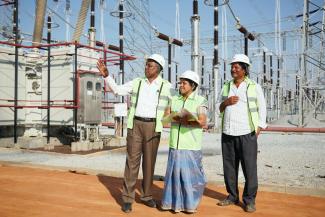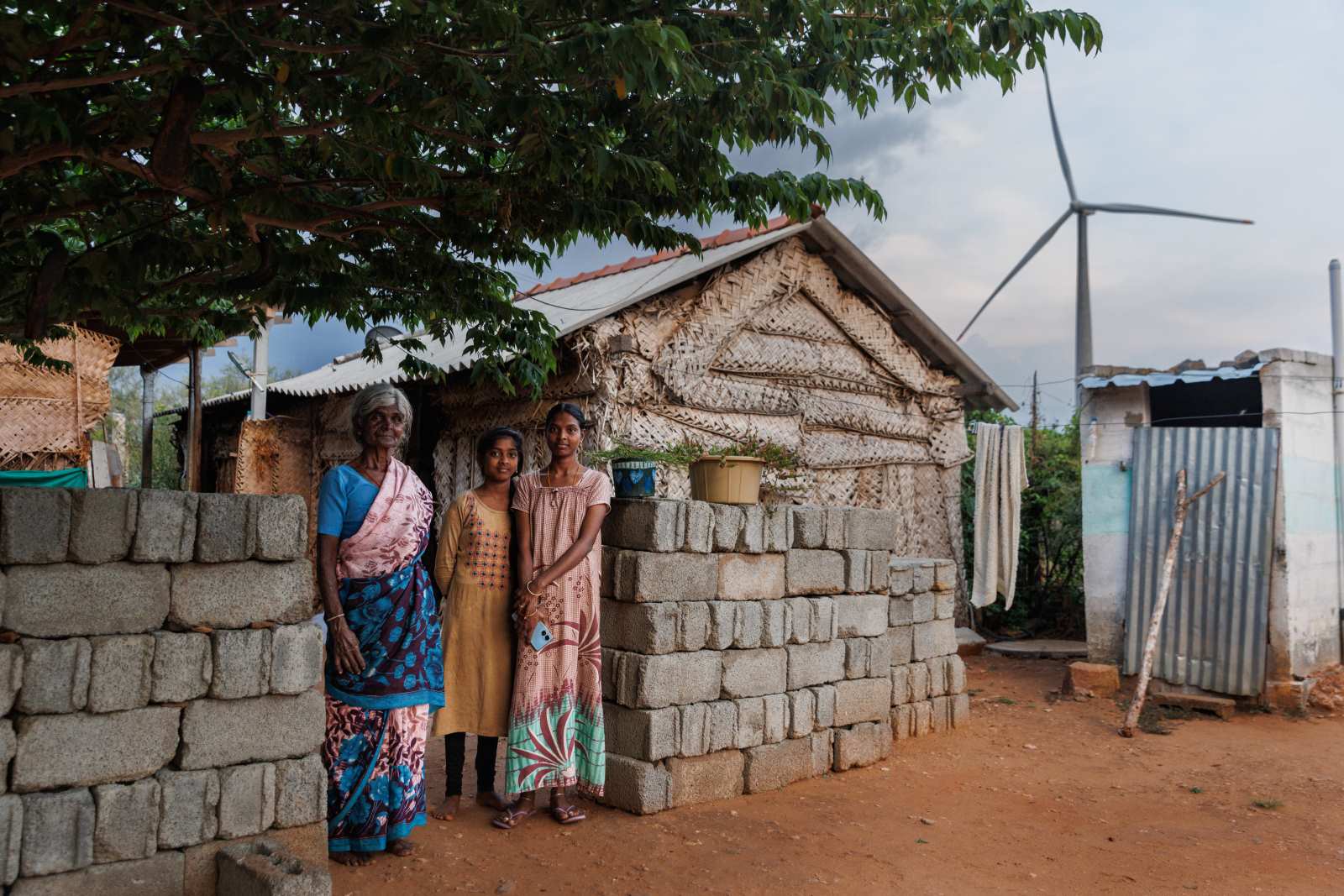KfW
Green energy corridors deliver electricity

India’s economy and population are growing quickly, and the demand for electricity in the country of 1.4 billion is rising too. Demand is expected to increase threefold by 2047. Given the climate crisis, some of this demand must be met with renewable energy.
India’s electricity still comes primarily from coal and gas-fired power plants. Renewables accounted for about 20 % of power generation in 2022. In eight years, that number should be around 50 %, which will require investments in the triple-digit billion range.
“India has ambitious construction goals and has already made considerable progress,” says Stefan Lindemann, senior portfolio manager at KfW. “At the same time, the Indian network has too little capacity to connect more solar and wind energy.” Moreover, the few areas that are suited to the construction of new solar and wind power stations are almost all far away from economic centres.
Large and long power lines are needed to deliver “green” energy to where it is needed most. With support from the government, Indian network operators are building “green energy corridors” (GEC). Solar and wind energy cannot be produced constantly, however, given fluctuations in weather. As a result, the power lines do not always work at full capacity, which makes them less profitable. Affordable loans are therefore needed for their construction.
On behalf of Germany’s Federal Ministry for Economic Cooperation and Development (BMZ), KfW has helped India construct GECs since 2013 by co-financing transmission lines and substations. In fact, it has issued one of the largest loans in its history, worth over EUR 1.4 billion. The national grid operator, Power Grid Corporation of India, received EUR 500 million. KfW also concluded loan agreements with network operators in nine Indian states.
The results are impressive: during the first phase of the project, KfW co-financed 7,800 kilometres of power lines and 97 substations. The second phase will add 2,800 kilometres of power lines and 35 substations. A total of over 40 gigawatts of renewable energy capacity will be connected to the Indian power grid. For comparison, in Germany, solar and wind power plants with a capacity of around 70 gigawatts have been built over the past ten years.
Challenges couldn’t always be avoided: the land on which such construction is to take place usually belongs to someone, Lindemann says. “However, these are often uninhabited areas, and we work diligently with our partners to minimize disruptions or even relocations. Furthermore, landowners are adequately compensated.” In addition, the operation of the substations creates approximately 1500 new jobs.
Prior to starting any construction project, KfW conducts environmental and social impact studies on site. Extensive analyses and action plans determine the standards that must be upheld, reports KfW expert Lindemann. For example, measures might be needed to protect birds if power lines cross the territories of endangered species.
The green energy corridors play a decisive role in India’s energy transition. In all, the electricity delivered through KfW-financed networks meets the needs of around 60 million people. The project will save almost 900,000 tonnes of CO2 per year.
Katharina Wilhelm Otieno
Link
KfW, 2023: Shaping a sustainable and fair global energy transition.










